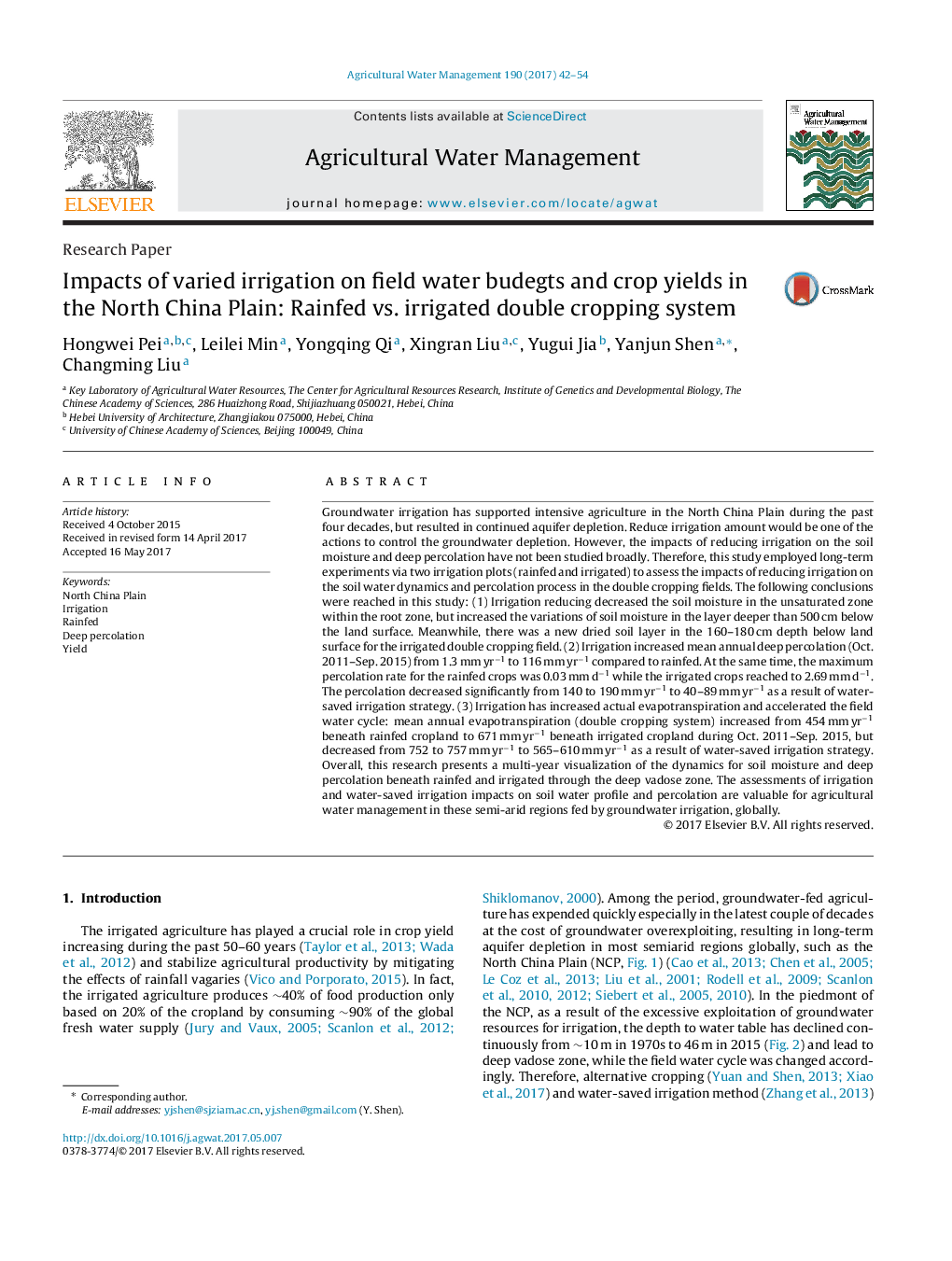| Article ID | Journal | Published Year | Pages | File Type |
|---|---|---|---|---|
| 5758316 | Agricultural Water Management | 2017 | 13 Pages |
Abstract
Groundwater irrigation has supported intensive agriculture in the North China Plain during the past four decades, but resulted in continued aquifer depletion. Reduce irrigation amount would be one of the actions to control the groundwater depletion. However, the impacts of reducing irrigation on the soil moisture and deep percolation have not been studied broadly. Therefore, this study employed long-term experiments via two irrigation plots (rainfed and irrigated) to assess the impacts of reducing irrigation on the soil water dynamics and percolation process in the double cropping fields. The following conclusions were reached in this study: (1) Irrigation reducing decreased the soil moisture in the unsaturated zone within the root zone, but increased the variations of soil moisture in the layer deeper than 500 cm below the land surface. Meanwhile, there was a new dried soil layer in the 160-180 cm depth below land surface for the irrigated double cropping field. (2) Irrigation increased mean annual deep percolation (Oct. 2011-Sep. 2015) from 1.3 mm yrâ1 to 116 mm yrâ1 compared to rainfed. At the same time, the maximum percolation rate for the rainfed crops was 0.03 mm dâ1 while the irrigated crops reached to 2.69 mm dâ1. The percolation decreased significantly from 140 to 190 mm yrâ1 to 40-89 mm yrâ1 as a result of water-saved irrigation strategy. (3) Irrigation has increased actual evapotranspiration and accelerated the field water cycle: mean annual evapotranspiration (double cropping system) increased from 454 mm yrâ1 beneath rainfed cropland to 671 mm yrâ1 beneath irrigated cropland during Oct. 2011-Sep. 2015, but decreased from 752 to 757 mm yrâ1 to 565-610 mm yrâ1 as a result of water-saved irrigation strategy. Overall, this research presents a multi-year visualization of the dynamics for soil moisture and deep percolation beneath rainfed and irrigated through the deep vadose zone. The assessments of irrigation and water-saved irrigation impacts on soil water profile and percolation are valuable for agricultural water management in these semi-arid regions fed by groundwater irrigation, globally.
Related Topics
Life Sciences
Agricultural and Biological Sciences
Agronomy and Crop Science
Authors
Hongwei Pei, Leilei Min, Yongqing Qi, Xingran Liu, Yugui Jia, Yanjun Shen, Changming Liu,
